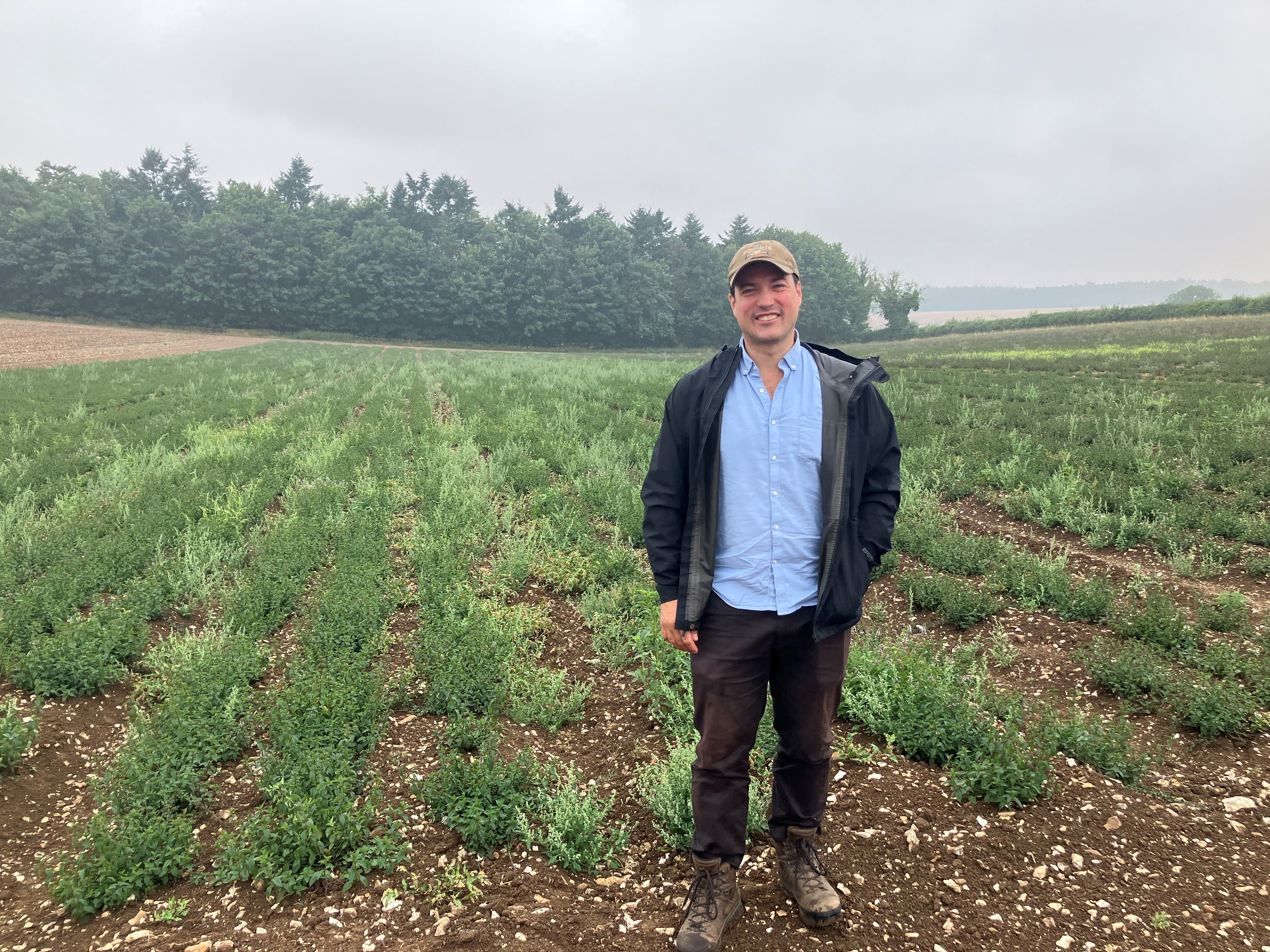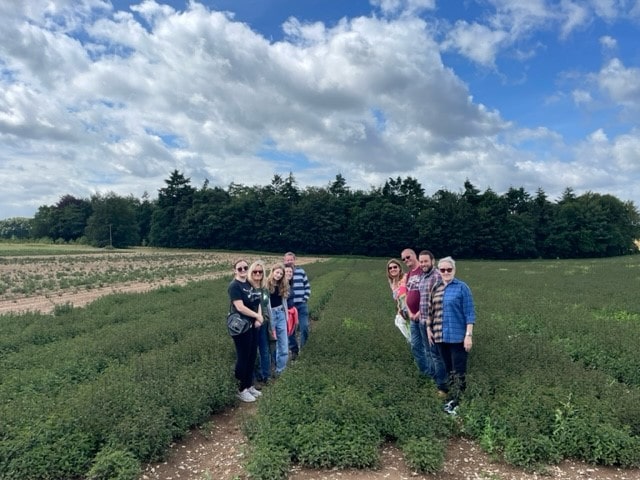
< Back to Main Blog Posted: Feb 2023
Jo Colman, Summerdown: healthy soil, healthy business
Looking out across a field of buckwheat, planted to provide shelter and food for wild birds, Jo Colman sums up his challenge as “having to make decisions for generations to come.” Jo himself is the third generation of his family to farm Summerdown Farm in Hampshire. It’s the UK’s largest peppermint farm and its eponymous brand produces a range of luxury mint products from teas and bath lotions to the mint chocolate crisps you can buy in COOK shops.
As a family of Roe deer spots us and bounces off through the buckwheat, Jo points to two shepherds’ huts and a cabin being built using lumber from the estate’s woodland. Glamping is one of the recent moves he’s made to diversify the farm’s income.
Another lies a short walk away: a field he hopes will soon be home to solar arrays. Wildlife margins around and between the panels will balance out the potential negative impact on nature, he says. That won’t maximise profit from the area for the solar company but, over 40-years, such a trade-off is a small price to pay for protecting biodiversity.

The Vision...
His vision of the future for British farming is one in which long-term thinking, creative land use and nature conservation work side by side, enabled by “public money for public goods” as promised by Defra in the recent Agriculture Bill.
Alongside the Black Mitcham peppermint, camomile and lavender for the teas and bath oils, Summerdown is also a traditional arable farm managed ably by Ian Margetts, Summerdown’s Master of Mint. The peppermint business is now as fundamental to the future of the farm as the traditional arable rotation is and the latter wouldn’t be able to function in the same way without it.
Ensuring there are diversified crops and sources of income enables Jo to spread risk and take a long-term view. What thrives in one year (lavender in last year’s hot summer) may struggle the next (mint in 2022). Over the longer term, it should mean a good business can be sustained. Jo is working on a 50-year business plan for the farm: “There comes a point at which growth can’t be just about expansion but needs to be about regeneration,” he says.
That’s not a typical approach to business. But then trying to treat farming like a normal business simply doesn’t work. Delivering a percentage growth each year isn’t what farming is about – at least, not if we want it work in harmony with nature.
Jo points out that when it comes to food, price is a very poor guide to value.

“Hopefully, in the next few years it may become clearer that rock bottom prices are simply unsustainable for all concerned,” he says.
He views the Summerdown Farm as an integrated ecosystem and has measured its total carbon footprint. He’s disappointed it isn’t yet carbon negative (i.e. sucking carbon out of the atmosphere), but aims to get there in the near future.
There is soil sampling across the farm every five years combined with satellite imaging of the land to identify exactly where the soil needs some rest, or some love.
“It all comes back to soil,” he says. “Healthy soil, healthy business model.”
It all feeds into Jo’s inspiring vision of Summerdown as a healthy, regenerative ecosystem that can thrive for generations to come. And in the here-and-now, we’ll settle for a seriously delicious chocolate mint crisp.
Explore the rest of our blog...
< Back to Main Blog Posted: Feb 2023


















